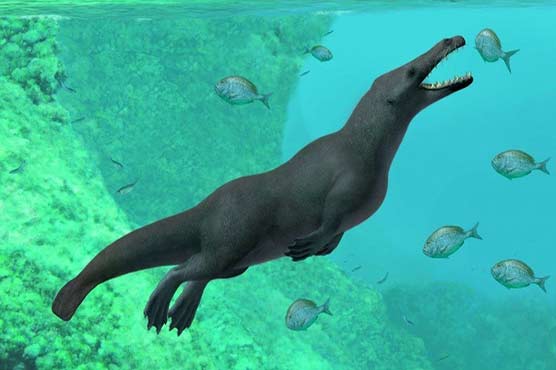Fossil of previously unknown four-legged whale found in Egypt

Fossil of previously unknown four-legged whale found in Egypt
Cairo (Reuters) – Scientists said on Wednesday they had found a 43-million-year-old fossil of an previously unknown four-legged whale species in Egypt that could help detect the evolution of whales from land to sea.
The newly discovered whale belongs to Protocytidae, a group of extinct whales that are in the midst of that change, the Egyptian-led team of researchers said in a statement.
Its fossils were found in the Central Eocene Rocks in the Fayum Depression in the Western Desert of Egypt – an area once covered by the ocean that provided a rich range of research into the evolution of whales – Mansoura University (Before reading in MUVP).
The researchers said the new whale, named Fumisatus anubis, weighed about three meters (10 feet) and weighed about 600 kilograms (1,300 pounds), and was probably a major predator. Its partial skeleton revealed it to be the oldest known protozoan whale from Africa.
“Fumisatus anubis is a major species of whale, and is an important discovery for Egyptian and African biology,” said Abdullah Gohar of MUVP, lead author of an article published in the journal Proceedings of the Royal Society B. VP
The whale’s genus name Fayum honors depression and the species name refers to Anubis, the ancient dog-headed Egyptian god associated with mummification and the afterlife.
The researchers said that despite recent organic discoveries, the big picture of the evolution of whales in Africa remains largely a mystery. The work in the region had the potential to reveal new details about the evolutionary transition from bilingual to fully aquatic whales.
With rocks nearly 12 million years old, discoveries in the Fum Depression range from “semi-marine crocodile-like whales to giant fully aquatic whales,” said Mohammed Samih, co-author of the Egyptian Environmental Agency.
Hesham Salem, founder and co-author of MUVP, said the new whale raises questions about ancient ecosystems and points to research into the origins and coexistence of ancient whales in Egypt.

